Mass Spectrometry Innovators
These are the great names who have helped shape the field of Mass Spectrometry.
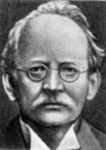
Joseph John Thomson
(1856 - 1940)
Cambridge University
Cambridge, Great Britain
The Nobel Prize in Physics, 1906
"In recognition of the great merits of his theoretical and experimental investigations on the conduction of electricity by gases."
Notable Achievement: First mass spectrometer
"At first there were very few who believed in the existence of these bodies smaller than atoms. I was even told long afterwards by a distinguished physicist who had been present at my [1897] lecture at the Royal Institution that he thought I had been 'pulling their legs."
J.J. Thomson (1936). Recollections and Reflections. G. Bell and Sons: London. p. 341.
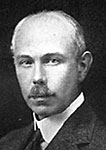
Francis William Aston
(1877 - 1945)
Cambridge University
Cambridge, Great Britain
The Nobel Prize in Chemistry, 1922
"For his discovery, by means of his mass spectrograph, of isotopes, in a large number of non-radioactive elements, and for his enunciation of the whole-number rule."
Notable Achievement: Mass spectrometry of isotopes
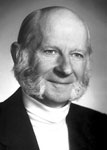
Hans Georg Dehmelt
(1922)
University of Washington
The Nobel Prize in Physics, 1989
"For the development of the ion trap technique."
Notable Achievement: Penning Ion Trap
Other Awards: Rumford Prize (1985), National Medal of Science (1995)
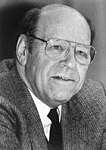
Wolfgang Paul
(1913 - 1993)
University of Bonn
Bonn, Germany
The Nobel Prize in Physics, 1989
"For the development of the ion trap technique."
Notable Achievement: Quadrupole and Quadrupole Ion Trap Mass Spectrometers
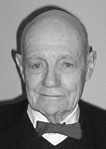
John B. Fenn
(1917)
Virginia Commonwealth University
Richmond, Virginia
The Nobel Prize in Chemistry, 2002
"For the development of soft desorption ionisation methods for mass spectrometric analyses of biological macromolecules."
Notable Achievement: Electrospray Ionization of Biomolecules
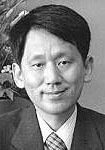
Koichi Tanaka
(1959)
Shimadzu Corporation
Japan
The Nobel Prize in Chemistry, 2002
"For the development of soft desorption ionisation methods for mass spectrometric analyzes of biological macromolecules."
Notable Achievement: Matrix-Assisted Laser Desorption/Ionization (MALDI)
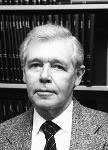
Klaus Biemann
(1926)
Massachusetts Institue of Technology (MIT)
Notable Achievement:
- peptide sequencing using mass spectrometry
Biographical Sketch
- Born in Innsbruck, Austria, 1926
- Received Ph.D. (organic chemistry) from the University of Innsbruck, 1951
Academic Appointments
- Instructor, University of Innsbruck, 1951 - 1955
- Research Associate, M.I.T., 1955 - 1957
- Instructor, M.I.T., 1957 - 1959
- Assistant Professor of Chemistry, M.I.T., 1959 - 1962
- Associate Professor of Chemistry, M.I.T., 1962 - 1963
- Professor of Chemistry, M.I.T., 1963 - 1996
- Emeritus, 1996 - Present
Honors
- Guggenheim Fellow, 1983 - 1984
- Field and Franklin Award in Mass Spectrometry of the American Chemical Society, 1986
- Thomson Medal, 1991
- Elected to the National Academy of Sciences, 1993
In addition to numerous other honors and memberships, Klaus Biemann has over 350 publications and a book, Mass Spectrometry: Organic Chemical Applications 1962 (reprinted by ASMS, 1998).
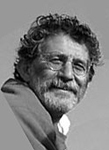
Brian T. Chait
(1949)
The Rockefeller University
Notable Achievements:
- ESI to probe non-covalent complexes
- ESI to probe solution conformation of proteins
- H/D exchange with ESI-MS for protein analysis
- Proteolysis with mass spectrometry for probing protein solution structure
- Stable isotope quantitation of protein expression and site-specific phosphorylation
- ESI mass spectrometer using a heated capillary as an ion transfer device
- Mapping interaction of DNA on DNA-binding proteins
- Database searching algorithms for protein identification
- Developed the utility of affinity mass spectrometry
- Protein ladder sequencing
Biographical Sketch
- Born July 6, 1949
- Received B.Sc. (Natural Sciences) from the University of Cape Town, South Africa, 1969
- Received B.Sc. Hons. (Physics) from the University of Cape Town, South Africa, 1970
- Received Ph.D. (Nuclear Physics) from the University of Oxford, United Kingdom, 1976
Academic Appointments
- Camille and Henry Dreyfus Professor, The Rockefeller University, New York, N.Y., 1995 - Present
- Professor, The Rockefeller University, New York, N.Y., 1991 - Present
- Director, The Rockefeller University Mass Spectrometric Biotechnology Research Resource, New York, N.Y., 1988 - Present
- Associate Professor, The Rockefeller University, New York, N.Y., 1985 - 1991
- Associate Director, The Rockefeller University Mass Spectrometric Biotechnology Research Resource The Rockefeller University, New York, N.Y., 1983 - 1988
- Assistant Professor, The Rockefeller University, New York, N.Y., 1981 - 1985
- Research Associate, The Rockefeller University, New York, N.Y., 1979 - 1981
- Postdoctoral Associate, Physics Department, University of Manitoba, Canada, 1977 - 1979
- Graduate Research for Doctor of Philosophy Degree at the Univ. of Oxford, Nuclear Physics Laboratory, U.K., 1972 - 1976
Awards and Honors
- Co-recipient of AAAS Newcombe Cleveland Prize, 1998
- Columbia University IAP Lecturer, 1999
- Bijvoet Medal, 2000
- Fellow New York Academy of Sciences, 2001
- ACS Field & Franklin Award for Oustanding Achievement in Mass Spectrometry, 2002
US Patents
19 issued, 1 pending
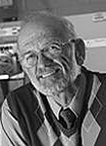
R. Graham Cooks
(1941)
Purdue University
Notable Achievements:
- Mixture analysis by tandem mass spectrometry
- Kinetic method for measuring ion thermochemistry
- Surface induced dissociation and ion/surface reactions
- Hybrid mass spectrometers
- Energy partitioning in ion dissociation
- Matrix-assisted desorption/ionization
- Ion traps: simulations of ion motion, miniaturization
Biographical Sketch
- B.S., University of Natal (South Africa), 1959
- M.S., University of Natal (South Africa), 1963
- Ph.D., University of Natal (south Africa), 1966
- Ph.D., Cambridge University (Elsie Ballot Scholar), 1967
Honors
- Henry Bohn Hass Distinguished Professor, Analytical Chemistry, Mass Spectrometry
- Fulbright Fellow, University of Warwick, 1981
- Purdue Cancer Research Award, Indiana Club. Listed as one of the four most cited analytical chemists by Current Contents, 1983
- ACS Analytical Division's Chemical Instrumentation Award, 1984
- Thomson Medal for International Service to Mass Spectrometry, 1985
- Purdue Sigma Xi Faculty Research Award, 1986
- Honorary member of the Chinese Mass Spectrometry Society. Adjunct Professor at the Beijing Institute of Technology, 1987
- Herbert Newdy McCoy Award, 1990
- NSF Special Creativity Award, 1990 - 1995
- Frank H. Field & Joe Franklin Award (ACS Award for Mass Spectrometry), 1991
- Fisher Award (ACS Award for Analytical Chemistry), 1997
- Doctorate of Science (Honoris Causa), University of Natal (South Africa), Honorary Life Member of the British Mass Spectrometry Society, Pittsburgh Spectroscopy Award form the Spectroscopy Society of Pittsburgh, PITTCON, ALA Achievement Award from the Association for Laboratory Automation, 1999
- Honor issue, International Journal of Mass Spectrometry, Highly Cited Chemist, 1981-1999, 1 out of 98 chemists, ISI Institute for Scientific Information, 2001
- Guest Professor, Jilin University, Chang Chun, China, 2002
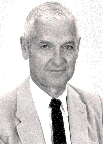
Malcolm Dole
(1903 - 1990)
Northwestern University
Notable Achievements:
- Discovery of the "Dole Effect", 1935
- Pioneered the development of a form of mass spectrometry that would become electrospray ionization (ESIMS) in 1980, 1966
Biographical Sketch
- Born March 4th, 1903.
- Received Bachelor of Arts in Chemistry, Harvard University, 1924.
- Received a Master of Arts in Chemistry, Harvard University, 1926.
- Received Doctorate in Physical Chemistry, Harvard University, 1928.
Academic Appointments
- Appointed as a Postdoctoral Research Assistant at Rockefeller Institute for Medical Research, 1928 - 1930.
- Joined faculty at Northwestern University, 1930 - 1943.
- Appointed as Technical Director, Thermal Diffusion Plant, Oakridge TN, 1944 - 1945
- Appointed as Professor of Chemistry, Northwestern University, 1964 - 1969
- Became the Robert A. Welch Professor of Chemistry, Baylor University, 1969 - 1982
Honors
- Army-Navy Certificate of Appreciation
- Outstanding Scholar, Baylor University
- Southwest Regional Award of the American Chemical Soceity
- A. Ottenberg Service Award, Santa Clara Valley Chapter of the American Chemical Society
- Appointed as Honorary Faculty Member, University of San Marcos, Lima Peru and University of Chile
- Physical Chemistry Advisory Panel Member, Office of Naval Research
- Chemistry Review Committee Member, Argonne National Laboratory
- Advisory Panel Member, National Science Foundation
- Consultant, Oak Ridge National Laboratory
- Trustee, Gordon Research Foundation
Professor Dole passed away on November 29, 1990 at his home in Los Gatos, California at the age of 87. He was survived by his wife, his daughter, son, and three grandchildren.
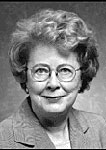
Catherine Fenselau
Notable Achievements:
- Biomedical Applications of Mass Spectrometry
- Mechanisms of Acquired Drug Resistance
- Rapid Analysis of Intact Microorganisms by Mass Spectrometry
Biographical Sketch
- Grew up in Nebraska
- Received AB degree from Byn Mawr College in Pennsylvania
- Received Ph.D. from Stanford University in the laboratory of Dr. Carl Djerassi
- Post-doctoral work with Melvin Calvin and A.L. Burlingame at the University of California and the NASA Space Science Laboratory at Berkeley
Academic Appointments
- Former faculty member, Johns Hopkins University's Medical School
- Past President, American Society for Mass Spectrometry
- Chair of the ACS Analytical Division, 2002
- Associate Editor, Analytical Chemistry, 1990 - Present
- Professor in the department of Chemistry and Biochemistry at the University of Maryland, 1990 - Present
- Serves on the Board of Directors of the Maryland Science Center, 1990 - Present
Honors
- Garvan Medal of the American Chemical Society, 1985
- Maryland Chemist Award, American Chemical Society, 1989
- Medal, Spectroscopy Society of Pittsburgh, 1993
- Merit Award National Institute of Health, 1991 to 2001
- Eastern Analytical Symposium Award in Analytical Chemistry, 1999
In addition to numerous other honors and memberships, Catherine Fenselau has over 300 publications and book chapters, and trained 150 post-doctoral fellows.
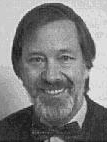
Franz Hillenkamp
(1936)
University of Münster
Notable Achievement:
- Matrix-assisted laser desorption/ionization (MALDI)
Biographical Sketch
- M.S.E.E., Purdue University, 1961
- Diploma (Ing., Communications), Technische Universität München, Germany, 1962
- Ph.D. (Dr. -Ing.), Technische Universität München, Germany, (Thesis: An Absolutely Calibrated Calorimeter for the Measurement of Pulsed Laser Radiation), 1966
Academic Appointments
- Part-time lecturer of Physics, University of Maryland, Munich Campus, 1963 - 1976
- Professor of Biophysics, J.W. Goethe Universität, Frankfurt, Germany, 1976 - 1986
- Professor, Medical Faculty, J.W. Goethe Universität, Frankfurt, Germany, 1982 - 1986
- Visiting Professor, Harvard Medical School, Boston, 1985
- Visiting Professor, Seconda Facoltà di Medicina, Università di Napoli, Italia, 1986
- Professor of Biophysics and Medical Physics, Westfälische Wilhelms Universität, Münster, Germany, 1986 - Present
Professional Appointments
- Research Scientist, National Laboratory for Radiation and Environmental Research, München, Germany, 1963 - 1968
- Deputy Head, Department of Coherent Optics, National Laboratory for Radiation and Environmental Research, München, Germany, 1968 - 1976
- Research Consultant,National Laboratory for Radiation and Environmental Research, München, Germany, 1976 - 1986
- Research Physicist, Massachusetts General Hospital, Boston, 1985
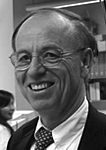
Donald F. Hunt
Notable Achievements:
- Charles H. Stone Award, 1990
- Virginia's Outstanding Scientist, 1992
- Pehr Edman Award, 1992
- Distinguished Contribution Award, American Society of Mass Spectrometry, 1994
- University of Virginia, Inventor of the Year Award, 1995
- Christian B. Anfinsen Award, Protein Society, 1996
- Chemical Instrumentation Award, American Chemical Society, 1997
- Field and Franklin Award, American Chemical Society, 2000
- Thomson Medal, International Mass Spectrometry Society, 2000
- Distinguished Contribution Award, International Human Proteome Organization, 2006
- Distinguished Contribution Award, Association of Biomolecular Resource Facilities, 2007
Biographical Sketch
- B.S., University of Massachusetts, 1962
- Ph.D., University of Massachusetts, 1967
- NIH Postdoctoral Trainee, Massachusetts Institute of Technology, 1967
- John Simon Guggenheim Fellow, 1981-1982
- Fogarty Senior International Fellow, 1981-1982
Academic and Professional Appointment
- University Professor of Chemistry and Pathology, present
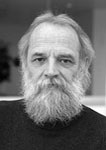
Michael Karas
(1952)
University of Frankfurt
Notable Achievements:
- Matrix-assisted laser desorption/ionization (MALDI)
- Contribution to reveal the fundamental physicochemical processes active in MALDI and ESI ion formation, to select molecular probes which allow for the development of mostly qualitative, but indicative models enabling us to improve the analytical performance on a rational base.
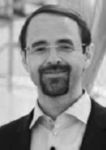
Alexander Alexeyevich Makarov
(1966)
Moscow Engineering Physics Institute
Notable Achievement:
- The invention of the Orbitrap analyzer
Biographical Sketch
- Received M.S. Molecular Physics, Moscow Engineering Physics Institute, 1989
- Received Ph.D. Physics and Mathematics, Moscow Engineering Physics Institute, 1993
- Postdoctoral Appointment, Warwick University, 1994-1996
Awards
- ASMS Distinguished Contribution in Mass Spectrometry Award, 2008
- Thomson Medal Award, 2012
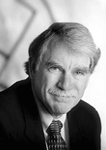
Alan G. Marshall
(1944)
Florida State University
Notable Achievement:
- His co-invention of Fourier transform ion cyclotron resonance (FT-ICR) mass spectrometry revolutionized the process for chemical analysis, providing far more detailed readings in a fraction of the time previously required.
Biographical Sketch
- Born in Bluffton Ohio, 1944
- Received B.A. in Chemistry, Northwestern University, 1965
- Received Ph.D. in Physical Chemistry, Stanford University, 1970
Academic Appointments
- Appointed as a faculty member at the University of British Columbia, 1969
- Ace hitter for the Canadian Men's Open Volleyball National Champion team, 1978
- Appointed as a faculty member at the Ohio State University, 1980
- Appointed as Distinguished Research Professor at Florida State University, 1993
Honors
- Fellow of American Physical Soceity
- Fellow of American Association for the Advancement of Science
- Eastern Analytical Symposium Award
- American Chemical Society Field-Franklin Award in Mass Spectrometry
- Spectroscopy Society of Pittsburgh Maurice F. Hasler Award
- New York Society for Applied Spectroscopy Gold Medal
- American Society for Mass Spectrometry Distinguished Contribution Award
Dr. Marshall has published four books, four patents, and 450 refereed journal articles, and has presented 1,400 talks/posters at conferences, universities, government labs, and industry. His papers had been cited 16,000 times.
For a complete, continuously updated, publication list and other information, visit the ICR Program web page.
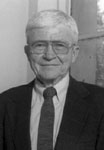
Fred W. McLafferty
(1923)
Cornell University
Notable Achievements:
- gaseous ion reactions (the McLafferty rearrangement)
- instrumentation (GC/MS, LC/MS, MS/MS)
- techniques (collisionally activated dissociation, neutralization-reionization, electron capture dissociation, IR photodissociation spectroscopy)
- computer data acquisition, reduction, and identification (Probability Based Matching)
- reference data (600K spectra)
- high resolution MS/MS characterization of biomolecules and gas-phase protein conformers
Biographical Sketch
- Received Bachelor's of Science degree, University of Nebraska, 1943
- Received US Army, Purple Heart, Combat Infantry Badge, 5 Bronze Star Medals for valor, Presidential Unit Citation, 1943
- Received Masters degree from University of Nebraska, 1947
- Received Ph.D. from Cornell University, 1947
- Post-doctoral work at the University of Iowa, 1947
- Director of Eastern Research Lab., Dow Chemical Co., 1950 - 1956
- Moved to Purdue University, 1964
- Moved to Cornell University (Peter J.W. Debye, Professor of Chemistry, Emeritus), 1968
Academic Appointments
- Honorary member of the Italian Chemical Society, 1981
- Member of the National Academy of Sciences, 1982
- Member of the American Academy of Arts and Sciences, 1985
- Editor, ACS "Accounts of Chemical Research"
Chair, ACS Analytical Chemistry Division and of its Midland and Northeastern Sections. Advisory Boards include: MS Research Facilities at Univ. of Naples (EEC, Chair), Rockefeller U., Wash. U., Boston U., Utrecht U., Cal Tech, and UCLA; Chem. Dept., Brookhaven Natl. Lab (Chair); Chem. Sect., AAAS (Chair); World Bank-Chinese Univ. Devel. Project, 3rd World Acad. Sci., ACS Petroleum Res. Fund, NSF EPSCoR (Idaho); journals Anal. Chem., Acc. Chem. Res., Chem. Revs., ACS Adv. Chem. Ser., Org. Mass Spectrom., Appl. Spectr. Rev., Handbook Spectral Data, Computers and Chem., Kolthoff-Elving Anal. Chem. Series, Anal. Appl. Pyrolysis, Mass Spectr. Rev., Computer Enhanced Spectr., J. Am. Soc. Mass Spectrom., J. Mass Spectrom.; and consultant to Dow Chemical, Perkin-Elmer, Hitachi, Varian, Finnigan, Universal Monitor, McDonnell-Douglas, Waters, Hewlett-Packard, Nicolet, and Extrel, 1986 - 1994 - Member of the Italian National Academy of Sciences XL, 2002
- Member of the National Research Council's Boards on Radioactive Waste Management, 2002
- Member of the Numerical Data, and Chemical Scientists and Technicians, 2002
- Member of the Panels on Separations Techn. Transmutation System, Army Chem. Sci., 2002
- Member of the Chem. Defense, and Pimentel Comm. that prepared "Opportunities in Chemistry", 2002
Honors
- American Chemical Society Awards in Chemical Instrumentation, 1972
- Spectroscopy Society of Pittsburgh Award, 1975
- Fisher Award, Analytical Chemistry, 1981
- Honorary Doctorate of Science degree, University of Nebraska, 1983
- Nichols Gold Medal (New York ACS Sect.), 1984
- Oesper Award (Cincinnati ACS Sect.), 1985
- Anachem Award, 1985
- J.J. Thomson Gold Medal (Intern. Mass Spectrom. Soc.), 1985
- S.C. Lind Award (E. Tenn. ACS Sect.), 1986
- W.L. Evans Award, Ohio State University, 1987
- Pittsburgh Analytical Chemistry Award, 1987
- Honorary Doctorate of Science degree, Liege University, 1987
- Field and Franklin Award, Mass Spectrometry, 1989
- Gold Medal, University of Naples, 1989
- Robert Boyle Gold Medal (Royal Soc. Chem.), 1992
- Pioneer in Analytical Instrumentation, 1994
- Honorary Doctorate of Science degree, Purdue University, 1995
- Chemical Pioneer Award (Am. Inst. Chemists), 1996
- J.M. Bijvoet Medal, Utrecht University, 1997
- Jaroslav Heyrovsky´ Medal (Czech Acad. Sci.), 1999
- Giulio Natta Gold Medal (Italian Chem. Soc.), 2000
- Torbern Bergman Medal (Swedish Chem. Soc.), 2001
- Distinguished Contribution in Mass Spectrometry Award (Am. Soc. Mass Spectrom.), 2003
- Lavoisier Medal (French Chem. Soc.), 2004
In addition to numerous other honors and memberships, Fred W. McLafferty has co-authored over 480 publications including the following: Mass Spectrometry of Organic Ions, 1963; Mass Spectral Correlations, 1963, 1982; Interpretation of Mass Spectra, 1966, 1973, 1980, 1993; Advanced Analytical Chemistry Instructions, 1966-1975; Atlas-, Archives-, Registry- and Important Peak Index of Mass Spectral Data, 1969, 1970-1973, 1974, 1982, 1989, 1991, 1994, 2000, 2004; Tandem Mass Spectrometry, 1983.
Dr. and Mrs. McLafferty have five children and nine grandchildren. (January 2004)
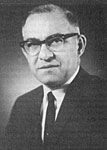
Alfred Otto Carl Nier
(1911)
University of Minnesota
Notable Achievements:
- Measured the isotopic composition of numerous elements including the discovery of four new isotopes.
- The development of the uranium-thorium-lead geochronological technique, and the determination of the half-lives of 235U and 238U.
- Accurate determination of the age of terrestrial samples by the uranium-thorium-lead method, which enabled a realistic age of the Earth to be calculated for the first time.
- Demonstrated that carbon isotopes varied in nature, thus disproving the notion that atomic weights are invariant in nature.
- The isotope separation of the carbon isotopes, and the application of these enriched isotopes to biological and medical research.
- The separation of the isotopes of 235U and 238U to confirm that 235U was the fissionable isotope of uranium.
- The design and development of the 60 º sector field mass spectrometer.
- The development of the helium leak detector.
- The use of multiple sector field mass spectrometers at the Oak Ridge Isotope Separation Plant to measure uranium enrichment throughout the Plant, using this as the basis of control engineering management of the Plant.
- The development of the potassium-argon geochronological technique.
- The measurement of variations of "well gas" 3He/4He isotope ratios, as compared to atmospheric values.
- The determination of the Absolute isotopic composition of a number of elements using enriched argon isotopes to calibrate a sector field mass spectrometer.
- His role in amalgamating the chemical and physical atomic weights scales into a unified system.
- The measurement of the isotopic composition of the noble gases in iron meteorites produced by cosmic ray bombardment.
- The use of electronics to revolutionize the mass doublet method of determining relative atomic masses, effectively turning mass spectrographs into mass spectrometers.
- The accurate measurement of the relative atomic masses of many elements using the Nier-Johnson double focusing mass spectrometer.
- The design of miniturarised mass spectrometers which were mounted in rockets and satellites to investigate the composition of the atmospheres of Earth, Mars and Venus.
- The investigation of the iaotopic composition of noble gases in Interplanetary Dust Particles.
Biographical Sketch
- Born May 28th, 1911.
- Received Bachelor of Electrical Engineering degree, The University of Minnesota, 1931.
- Received Ph. D. in Physics from the University of Minnesota in 1935.
- Post Doctoral Fellowship at Harvard University in 1936.
- Appointed to the staff of the Physics Department at the University of Minnesota in 1938.
- Appointed as a Regents' Professor of Physics in 1966.
- Appointed as an Emeritus Professor of Physics at the University of Minnesota in 1980.
Academic Appointments
- Post Doctoral Fellowship at Harvard University , 1936-1938.
- Assistant Professor of Physics at the University of Minnesota, 1938.
- Research scientist at the Kellex Corporation, New York, 1943-1945.
- Regents' Professor of Physics at the University of Minnesota, 1966.
- Emeritus Professor of Physics, University of Minnesota, 1980.
- Team member of the NASA Viking Expedition to Mars.
- Team member of the NASA mission to Venus.
Honors
- Honorary Doctor of Science, University of Minnesota, 1980.
- Arthur L. Day Medal of the Geological Society of America.
- William Bowie Medal of the American Geophysical Union.
- Victor Goldschmidt Medal of the Geochemical Society.
- The Field and Franklin Award of the American Chemical Society.
- Fellow of the National Academy of Science.
- Fellow of the American Philosophical Society.
- Fellow of the American Academy of Arts and Sciences.
- Foreign Member of the Max-Planck Institute for Chemistry in Germany.
- Foreign Member of the Royal Swedish Academy of Science.
- Medal of the Atomic Energy Commission.
- Medal of the National Aeronautics and Space Administration.
- The AOC Nier Symposium in Inorganic Mass Spectrometry was established by the Los Alamos, National Laboratory in his honour.
Professor Nier was the author or coauthor of 216 papers published in the international scientific literature from 1935 to 1994. He made major contributions to the fields of atomic weights, geochronology, isotope geochemistry, meteoritics, noble gas geochemistry, nuclear physics and space science.
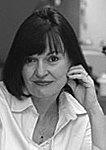
Carol V. Robinson
Notable Achievements:
- Her research has led to a greater understanding of cellular complexes, to the discovery of new therapeutics and more generally prompts new avenues of research for complex biological systems.
Biographical Sketch
- M.S., The University of Wales
- Ph.D., University of Cambridge
Academic Appointments
- Professor and Director of the Walthers-Kundert Unit for Biological Chemistry, University of Cambridge, present
Honors
- Royal Society University Research Fellowship, 1995
- Fellow of the Royal Society of Chemistry, 2000
- American Society of Mass Spectrometry's Biemann Award, 2003
- Fellow of the Royal Society's Rosalind Franklin Award and Fellow of the Royal Society, 2004
Professor Robinson is an outstanding role model and mentor for younger women scientists.